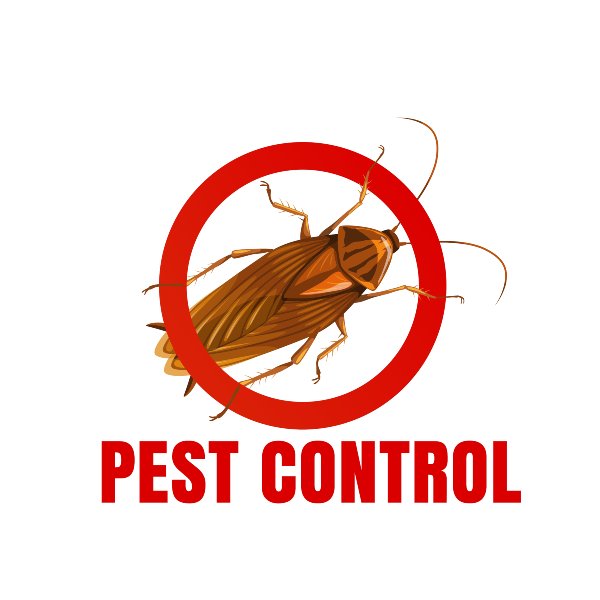Find the Best Exterminator Coquitlam for Fast and Reliable Pest Control
Find the Best Exterminator Coquitlam for Fast and Reliable Pest Control
Blog Article
Safe and Trustworthy Parasite Control for Lasting Protection
Efficient insect management needs a multifaceted strategy that balances ecological honesty with the requirement for effective bug suppression. The nuances of these methods might not be right away clear, prompting a closer exam of the practices that can lead to lasting insect control end results.
Comprehending Parasite Control Techniques
Parasite control includes a selection of methods targeted at managing and removing undesirable insects and rats that can intimidate both health and property. Comprehending these approaches is crucial for efficient parasite management.
The main groups of pest control methods consist of mechanical, organic, and chemical approaches. Mechanical techniques entail physical obstacles and catches to stop parasite access and capture unwanted types. Utilizing displays on home windows or employing sticky traps can significantly decrease bug populaces without presenting dangerous substances - exterminator coquitlam.

Chemical bug control is typically the most acknowledged approach, utilizing pesticides to remove parasites. These chemicals can be efficient but must be made use of with care to avoid adverse results on non-target types and the atmosphere.
Benefits of Eco-Friendly Solutions
How can environment-friendly solutions transform parasite control methods? The fostering of eco-friendly insect control techniques supplies numerous benefits, dramatically enhancing the efficiency and security of parasite management.

One more benefit is the favorable effect on regional biodiversity. Eco-friendly solutions are developed to target certain insects while preserving beneficial bugs and wildlife, advertising a balanced ecological community. This approach aligns with the expanding consumer need for lasting techniques, improving the credibility of bug control companies.
Integrated Pest Management Methods
The execution of green services normally causes the adoption of Integrated Insect Management (IPM) strategies, which even more improve insect control effectiveness. IPM is a holistic strategy that combines several techniques to handle insect populations while minimizing ecological impact. This technique highlights using biological, cultural, mechanical, and chemical controls, guaranteeing a sustainable and well balanced technique of bug administration.
One fundamental facet of IPM is the extensive assessment of bug activity and environmental conditions. By monitoring insect populations and identifying their life cycles, experts can implement targeted treatments that disrupt the parasite's habitat or lifecycle, lowering reliance on chemical pesticides. In addition, cultural methods such as plant turning and habitat adjustment can substantially lessen insect establishment and recreation.
An additional vital part is using biological control agents, such as advantageous bugs or bacteria, which can normally suppress insect populations. When chemical applications are needed, IPM prioritizes making use of low-risk pesticides and uses them selectively, lessening direct exposure to non-target organisms and humans.
Incorporating IPM approaches not only boosts bug control effectiveness yet also advertises a more secure community, aligning with the expanding need for lasting techniques in pest management.
Safe Practices for Home Owners
Comprehending the significance of risk-free practices in pest control can empower home owners to successfully handle pest problems while safeguarding their health and the atmosphere. Executing safe techniques and safety nets is important in reducing direct exposure to hazardous chemicals.
Home owners need to first analyze their environment for conditions that attract pests, such as standing food, clutter, and water waste. Frequently cleaning and sealing access points can deter insects from getting into the home. Using all-natural deterrents, such as important oils or diatomaceous earth, can provide effective options to chemical pesticides.
When chemical treatments are necessary, house owners should choose products that are specifically labeled as secure for residential usage. It is vital to adhere to application guidelines meticulously to stay clear of overexposure. Additionally, utilizing targeted treatments in areas moved here where insects are determined, as opposed to covering splashing, can significantly decrease chemical use.
Last but not least, maintaining open interaction with parasite control experts is important. House owners should ask about the safety of items used and request environment-friendly alternatives whenever possible. By adopting these risk-free methods, property owners can develop a much healthier living environment while successfully handling bug issues.

Tips for Long-Term Protection
Establishing an insect monitoring approach that emphasizes long-lasting defense can significantly enhance the performance of the secure practices formerly reviewed. To achieve this, home owners need to execute regular examinations of their property, concentrating on hidden areas such as attics, basements, and crawl spaces. Early detection of parasite activity is critical in protecting against infestations from holding.
These methods reduce attractants that attract bugs into the home. Sealing access points, such as fractures around doors and windows, can efficiently block possible insect gain access to.
Landscape design ought to additionally be taken into consideration; keeping plants cut and maintaining a range in between plants and the home decreases concealing areas for pests. Utilizing natural deterrents, such as essential oils or diatomaceous planet, can better discourage infestations without considering rough chemicals.
Finally, teaming up with a professional insect control service for regular evaluations can supply an added layer of protection. These experts can offer customized suggestions and progressed treatments, making sure that your home stays protected against insects in the long term.
Verdict
To conclude, secure and reliable insect control calls for a multifaceted method that stresses green methods and incorporated parasite management. By applying all-natural deterrents, conducting routine inspections, and keeping appropriate hygiene, home owners can dramatically reduce bug populaces while protecting valuable insects and the setting. Cooperation with professional bug control services enhances the performance of these methods, making certain tailored Homepage solutions that read review provide lasting protection and satisfaction against future invasions.
Efficient bug management requires a complex technique that balances environmental honesty with the demand for efficient insect reductions. The adoption of green bug control methods provides many benefits, substantially improving the effectiveness and safety and security of insect management.The application of green services normally leads to the fostering of Integrated Parasite Administration (IPM) techniques, which additionally improve bug control efficiency. exterminator coquitlam. By keeping an eye on parasite populations and identifying their life cycles, practitioners can implement targeted treatments that interfere with the pest's habitat or lifecycle, decreasing reliance on chemical pesticides.In verdict, risk-free and dependable parasite control calls for a multifaceted strategy that emphasizes green methods and integrated insect management
Report this page